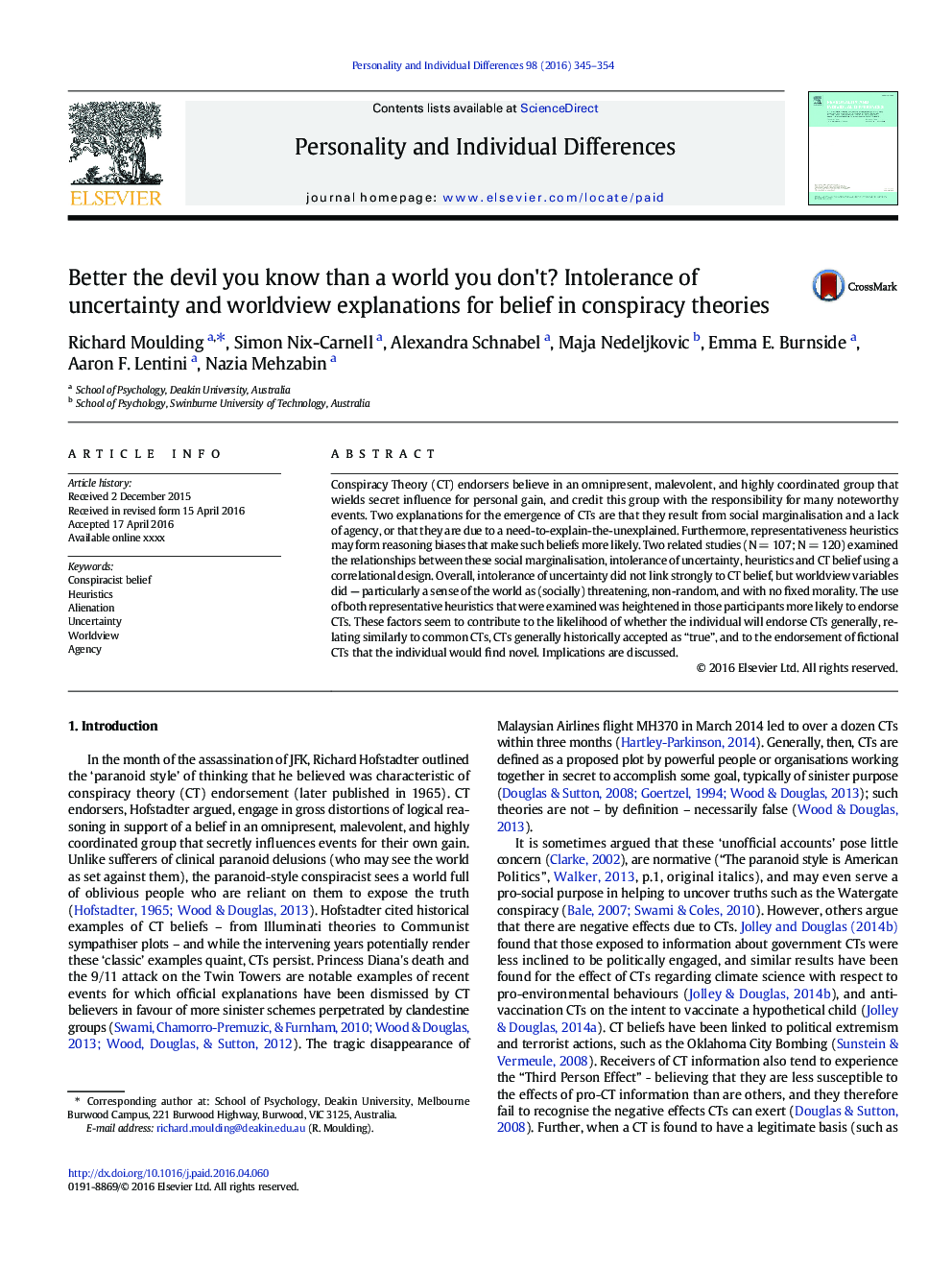| Article ID | Journal | Published Year | Pages | File Type |
|---|---|---|---|---|
| 7250133 | Personality and Individual Differences | 2016 | 10 Pages |
Abstract
Conspiracy Theory (CT) endorsers believe in an omnipresent, malevolent, and highly coordinated group that wields secret influence for personal gain, and credit this group with the responsibility for many noteworthy events. Two explanations for the emergence of CTs are that they result from social marginalisation and a lack of agency, or that they are due to a need-to-explain-the-unexplained. Furthermore, representativeness heuristics may form reasoning biases that make such beliefs more likely. Two related studies (NÂ =Â 107; NÂ =Â 120) examined the relationships between these social marginalisation, intolerance of uncertainty, heuristics and CT belief using a correlational design. Overall, intolerance of uncertainty did not link strongly to CT belief, but worldview variables did - particularly a sense of the world as (socially) threatening, non-random, and with no fixed morality. The use of both representative heuristics that were examined was heightened in those participants more likely to endorse CTs. These factors seem to contribute to the likelihood of whether the individual will endorse CTs generally, relating similarly to common CTs, CTs generally historically accepted as “true”, and to the endorsement of fictional CTs that the individual would find novel. Implications are discussed.
Related Topics
Life Sciences
Neuroscience
Behavioral Neuroscience
Authors
Richard Moulding, Simon Nix-Carnell, Alexandra Schnabel, Maja Nedeljkovic, Emma E. Burnside, Aaron F. Lentini, Nazia Mehzabin,
